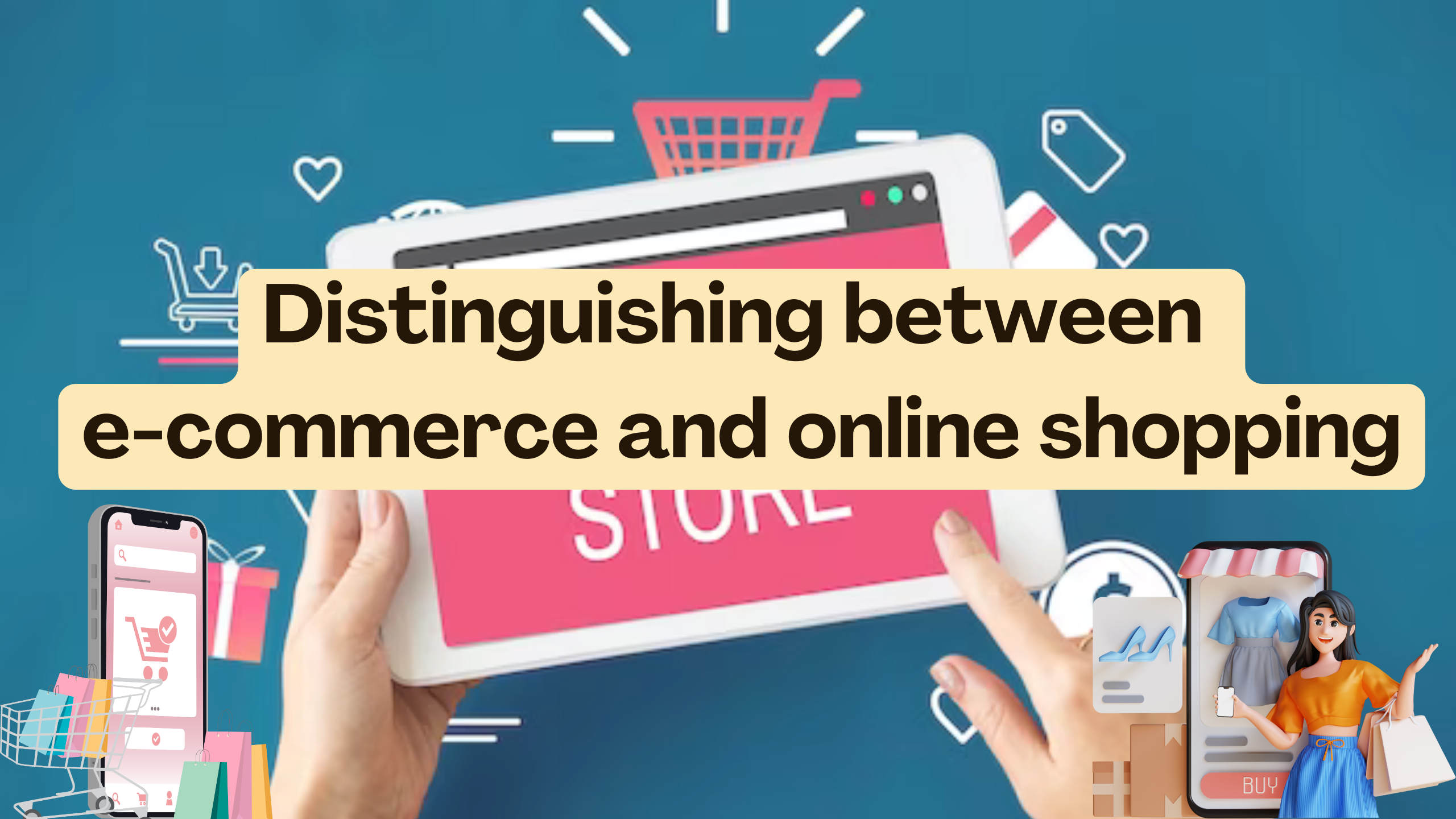Distinguishing between e-commerce and online shopping


Distinguishing Between E-Commerce and Online Shopping
In the dynamic realm of online business, the terms “e-commerce” and “online shopping” are often used interchangeably. However, they represent distinct aspects of the digital retail landscape. Let’s explore the differences and shed light on the nuanced features that set them apart. For more insights into optimizing your e-commerce strategies, visit Subscribed.fyi.
Understanding E-Commerce and Online Shopping
1. Defining E-Commerce
E-commerce, short for electronic commerce, encompasses a broad spectrum of online commercial activities. It involves the buying and selling of products or services over the internet, covering diverse business models such as:
- B2B (Business to Business): Transactions between companies.
- B2C (Business to Consumer): Businesses selling directly to end-users.
- C2B (Consumer to Business): Consumers offering products or services to businesses.
- C2C (Consumer to Consumer): Individuals selling products to other individuals.
For e-commerce ventures looking to streamline their operations, Subscribed.fyi offers exclusive discounts on essential SaaS tools like Shopify, BigCommerce, and more.
2. Understanding Online Shopping
Online shopping, on the other hand, specifically refers to the act of purchasing goods or services over the internet. It is a subset of e-commerce, focusing solely on the transactional aspect of buying products online. Platforms like Shopify, WooCommerce, and Magento enable consumers to browse, select, and purchase items through digital interfaces.
Distinguishing Factors
1. Scope
- E-Commerce: Encompasses a broader range of online business activities, including marketing, payment processing, inventory management, and logistics.
- Online Shopping: Focuses specifically on the transactional process of purchasing goods or services online, narrowing its scope to the customer-facing shopping experience.
2. Business Models
- E-Commerce: Covers various business models catering to different types of transactions between businesses, consumers, and individual sellers.
- Online Shopping: Primarily involves B2C transactions, where businesses sell directly to consumers. However, C2C models can also be included in this category.
For businesses looking to explore multiple business models, make sure to visit Subscribed.fyi to gain insights.
3. Functionality
- E-Commerce: Involves a comprehensive set of functionalities, often supported by robust platforms to manage marketing, sales, and customer relationships.
- Online Shopping: Emphasizes the user interface and features directly related to the shopping experience, such as product display, search functionality, and secure checkout options.
Conclusion
In essence, while e-commerce is the overarching concept that covers a myriad of online business activities, online shopping specifically refers to the act of making purchases online. Understanding these distinctions is crucial for businesses aiming to establish a strong online presence.
Unlock Exclusive Deals with Subscribed.FYI
Enhance your e-commerce and online shopping endeavors with exclusive deals from Subscribed.fyi. Seamlessly manage your SaaS subscriptions and optimize your digital business operations.
- Unlock Secret Deals: Access exclusive deals on essential SaaS tools for your e-commerce venture. Discover discounts on platforms like Shopify, Magento, WooCommerce, and more on Subscribed.fyi’s.
- Streamlined Subscription Management: Utilize Subscribed.fyi to effortlessly manage and optimize your SaaS subscriptions, ensuring your business runs efficiently.
- Informed Decision-Making: Make data-driven decisions with comprehensive insights provided by Subscribed.fyi, helping you choose the right tools for your e-commerce strategy.








